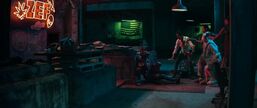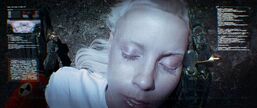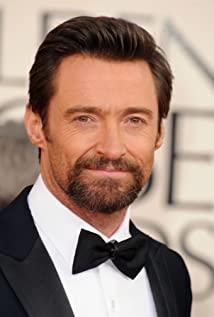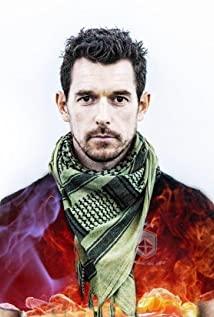After watching it, I realized that the director had already laid the groundwork for the sequel.
This seemingly inexplicable propaganda slogan that is separated from the main body of the story (robot) has actually closely linked the fate of humans and artificial intelligence robots.
Did humans evolve into machines, or did machines eventually become humans?
Director Neill Blomkamp may be ready to reveal the answers for those of us who may or may not live in a sequel that may or may not exist.
In the end, Blomkamp is still suitable for driving low-cost "ethical" and "dirty" sci-fi with rough texture. After the two feature films of "District 9" and "Elysium", I don't seem to see his growth. He always tries to explore issues such as the boundary between man and machine, human beings, class contradictions, racism, etc., but he is superficial again, and like "Pole", this film has huge flaws in the story.
After District 9, Blomkamp's script never matured. It seems that Blomkamp without Peter Jackson's escort is still a bit "unfortunate".
Although he has his own gradually clear style imprint in his works, he is more and more unable to escape his own shadow. For example, isn't Chappie in "Super Chappie" exactly the same as the robot cop in "Elysium"? For another example, isn't that "moose" like the alien technology in "District 9"?
As a general audience I am not satisfied with Blomkamp's work, because he is irresponsible to the audience: the narrative is fragmented, the content is disorganized, the performance is rigid and rigid, the characters are equally unmotivated, and the character transformation is more exciting Can't figure it out.
For example, the gangster girl who was murdering Matt who was conspiring to rob a cash truck one second ago turned into a loving mother the next second, and the tattooed gangster man who cheated her "son" in order to rob a cash truck in the last scene In one scene, I found my conscience and prepared to sacrifice myself bravely in order to protect my "son" from leaving with his "birth father". I will never forget the resolute little eyes and the tall figure that is reckless.
Not to mention the non-existent president lady played by Sigourney Weaver. And the villain played by Hugh Jackman is also a character with no character at all. He seems to have a lot of "personality" - tyrannical, aggressive, stubborn, but he is still terribly thin, he seems to be completely incapable of thinking, because other than letting his He couldn't find any way to make it work except that the war machine was used by the police, and his life seemed meaningless. And at the end of the climax scene, Uncle Hugh was "easy" to be defeated by a robot that he despised as broken metal. This is even more unacceptable to me. There are few scenes and no room for shaping? This is not a reason.
The film ends with the "uploaded" male protagonist and Chappie preparing to resurrect and kill Matt's gangster girl (another film that ends with a close-up of the eyes). The director's story seems to be over, but in fact it has just begun.
In my opinion, the entire 110-minute feature-length "Chappie" doesn't say anything except to tell the audience that people can get immortality through artificial intelligence. In particular, Chappie's passage from an ignorant novice to a black-bellied robot is long and boring, which once again shows that there are indeed some problems with Blomkamp's sense of rhythm.
There is no doubt that Blomkamp is a director with ideas, but he cannot control and balance his ideas to serve the work itself. He originally wanted to convey to the audience his thoughts on the future of mankind or the existential philosophy of man and machine in "Super Chappie", and even intended to tell the audience how to educate a budding kid to understand the world and make it not change It's bad, but he still doesn't know how to coordinate his excessive desire for expression in a work. Elysium failed in large part because of that.
Through this film, I also saw the shadow of the following works: "District 9", "Elysium", "Transcendence", "Superbody", "Robocop", "Artificial Intelligence", "Machine" The Butler, and even Astro Boy. It can be seen that the director does not lack ideas. There are many problems with Blomkamp's work, and emptiness is not one of them.
Yet cinema is the art of subtraction, not addition.
A movie is like a paper, there is (usually) only one point, but it takes the director two hours to demonstrate it; and the most important thing is not the conclusion but the process. I learned this concept from Ang Lee, and most of his films are the same; the reason why his films are good is that he often subtly hides his point of view and forces the audience to perceive and think, and the second is because His "argumentation process" is always brilliant and indescribable.
I agree with Mr. Xu Haofeng's statement: "What matters is not what you express, but what you show."
Blomkamp expressed a lot, but he seemed to have no idea what the core of his story was at the text stage. During the shooting stage, he had to shoot a little here and there, and then mix and cut them together in post-production—so the original sci-fi "Super Chappie" sometimes looks like a gangster film, sometimes like a parenting science film, and sometimes like a comedy film. It's no wonder.
Blomkamp had too many ideas in his head that he was proud of, and he couldn't bear to throw away even one. This seems to be a common problem for young directors.
The most commendable thing about the director's design in this film is that he endowed Chappie with humanity, and Chappie was timid, cowardly and afraid of death. This is the most terrifying robot I have ever seen, and the act of fighting to survive even if it violates its creator is very moving. Chappie has become flesh and blood, and the audience unconsciously ignores that it is just a A reinforced iron bone and a sense of identification with it.
Blomkamp is a stylized director. No one else seems to be able to learn his style. The mashup of gangsters, violent neighborhoods, slums, South African killing Matt, dirty streets, skinless "cheap" robots, and so on, makes his aesthetic unique. Mixing is not a problem at first, Quentin Tarantino and his good friend Robert Rodriguez are masters at mixing and matching, and Blomkamp's problem is that his control and execution are not enough, so he mixes and mixes himself and loses his position.
For a commercial film, creativity and story are relatively secondary, and the sense of rhythm, balance, and proportion are the most important. Unfortunately, Blomkamp lacks all three.
Because of the halo of "The Ninth District", his last work "Elysium" was listed as my annual expectation the year before last, but it turned out that I was too young and too innocent. Blomkamp willfully destroyed my trust, and since then I stubbornly felt that South Africans were all liars. I didn't plan to watch this movie this time. The wound that Blomkamp left me will still hurt in the middle of the night, just because the movie ticket is so cheap that it only costs 4.6RMB, so I don't take advantage of it. The attitude of not occupying is gone.
It turned out that the film was not bad, just like "Elysium" but immature, after all - it's hard to get cheaper movie tickets.
There are many shortcomings in this film, and it is easy for the audience to find these problems, it is very easy - as long as the audience with a little reading volume can find it. So why are there many directors who understand movies but few directors? Because the vast majority of people who understand movies can only find problems but not solve them. Problem-solving skills are scarce and valuable.
Finding these flaws is so much easier than fixing them.
I have written so much, but I can only find problems, and I have absolutely no confidence in solving these problems in the script, let alone filming. And until the film is finished, no one can know for sure what the final result will look like.
Movies are risk. As Mr. Roden said: "A good movie is accidental, and a bad movie is inevitable." Mr.
Xu Haofeng wrote such a paragraph in "The Knife and the Stars", and I am convinced:
no one will admit that the movie is a Professional because everyone talks about events and analyzes characters. Everyone can talk about movies, which makes the situation of filmmakers very embarrassing, especially the young directors who attract investment. Young directors are faced with countless suggestions and comments to improve the plot and characters, but you can't say: "I don't accept it, what you are talking about is the story, what I am talking about is the story."
Blomkamp's luck is still not very good, this time "Super Chappie" was hit by "Fast and Furious 7" and then "Avengers 2", leaving it with extremely small space. It's tragic enough that only 70 million were released in China for 5 days. And so far it has only grossed $31 million at the global box office, yet its budget is "as high" as $49 million.
Seeing the cruel face of the world, I silently lit a candle for Blomkamp to commemorate his dead youth, so I wanted to write him a letter and tell him: "I have forgiven you for fooling me with "Elysium". "In the
credits at the end of the credits, I saw that the soundtrack was actually Hans Zimmer, and I broke into a cold sweat. I could only comfort myself that the master also completely forgot his homework during the winter and summer vacations, so he had to deal with the teacher at the beginning of the school year.
View more about Chappie reviews










